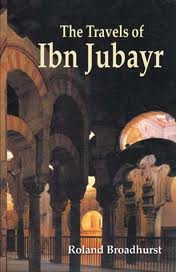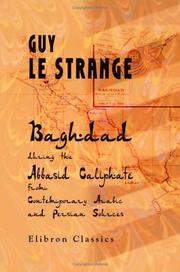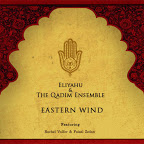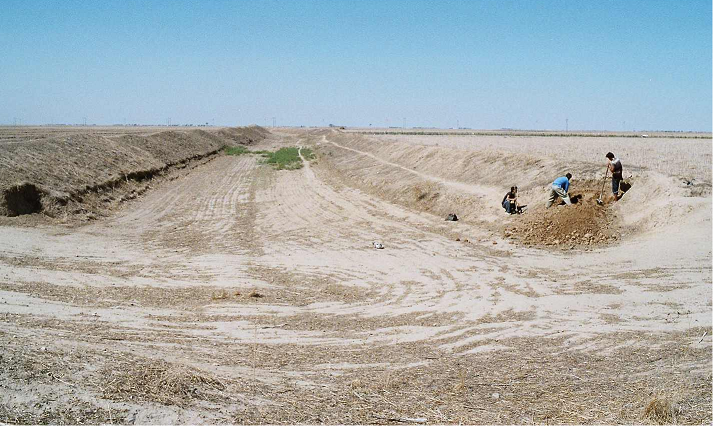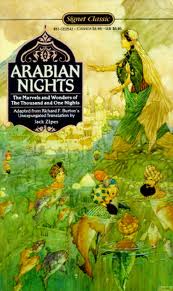
In a work as varied as The Arabian Nights there are naturally some portions more popular than others, probably because some are more easily adapted into standalone tales of adventure. I think we in the West are more familiar with the Nights as a concept than a whole, and many of us have only read or watched adaptions of the most famous of the tales.
Don’t presume that means that the best of the stories have all been filmed and that there is no point reading the rest. There are plenty of excellent, lesser known yarns within, and surely part of the fun of reading the nights is watching the puzzle box interrelation of stories within stories within stories. Admittedly, there are some portions that I don’t like as well and don’t revisit, as with any short story anthology, and many people feel the same, although you’re likely to get a slightly different list of favorites from whomever you speak with.
Today I want to draw attention to one of my favorite sections, “The Wily Dalilah and Her Daughter Zaynab.” If you’ve ever read my musings, you might expect this to be a tale of swashbuckling adventure set in distant locales, swimming with magic rings and djinn and evil wizards. “The Wily Dalilah,” though, is set only in Baghdad, and there is no magic to speak of within the entire story. There are no daring princes with swords, or mysteries, only a clever old woman running a series of con games. Over the course of the narrative, Dalilah, with occasional aid from Zaynab, foments so much trouble in Baghdad that she draws down the attention of the caliph himself.
 I’m over at SFSignal today with a number of authors, Mind Melding about cities in science fiction and fantasy, and epic road trips. You can probably predict that I mentioned Amber, Lankhmar, and Baghdad.
I’m over at SFSignal today with a number of authors, Mind Melding about cities in science fiction and fantasy, and epic road trips. You can probably predict that I mentioned Amber, Lankhmar, and Baghdad.
 I think my favorite parts of Alexander the Great’s life involve his fight with the dragon, and the time he climbed to a mountain summit and saw the angel of death. Not to mention his conversation with the speaking tree. After that, his meeting with the Emperor of China was almost superfluous.
I think my favorite parts of Alexander the Great’s life involve his fight with the dragon, and the time he climbed to a mountain summit and saw the angel of death. Not to mention his conversation with the speaking tree. After that, his meeting with the Emperor of China was almost superfluous.
